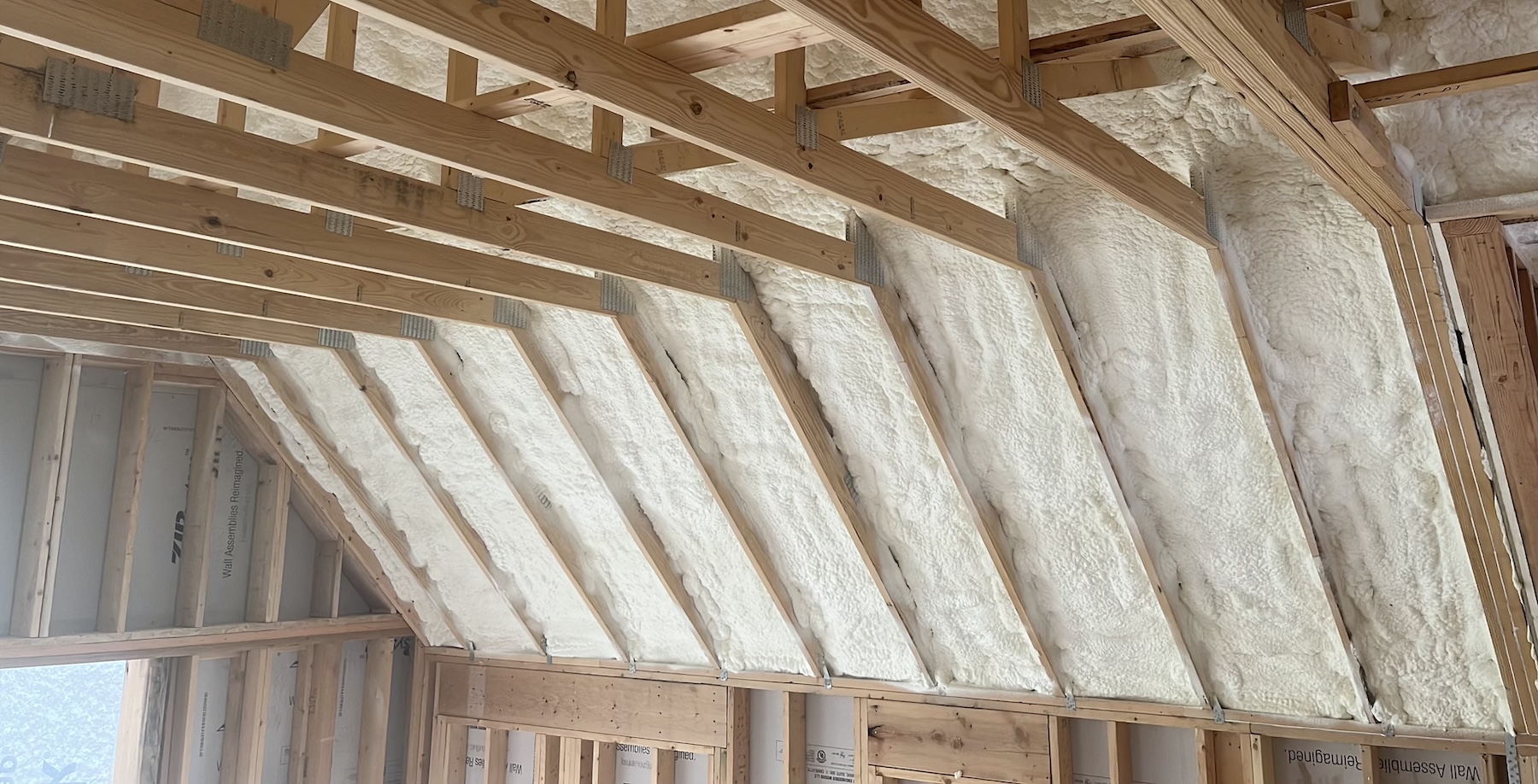
If your home feels cold and drafty, your first instinct might be to blame your windows. It makes sense—it probably feels colder when you’re standing near your windows and you might even feel drafts coming right through them.
Windows can be a source of air leaks in a home, but most of the time, they’re only a small part of the problem. The real culprit is almost always your insulation and air sealing.
Before you drop twenty grand on new windows, let’s take a closer look at why you should make sure your insulation and air sealing are in good shape first.
Biggest Sources of Drafts & Energy Waste
Windows can contribute to a drafty home. If you have old, single-pane windows or if your windows weren’t installed well, you’re probably losing energy through them, too. But in most houses, only a small percentage of all the air leakage and energy loss that’s happening is caused by its windows.
The biggest air leaks in a home are usually caused by:
- Attics – Most attics are poorly insulated and full of air leaks that let heat seep out of your house in the winter and into it during the summer.
- Basements & Crawl Spaces - The bottom of your house is a huge source of air leaks, letting in heat, cold, drafts, and moisture.
- Electrical Wiring & Pipes - There are almost always gaps around the holes where utilities enter your house, letting air leak in and out.
How to Stop Drafts & Save Energy
In some cases, replacing old windows will help improve energy efficiency and comfort in your home. But in most cases, fixing drafty windows isn’t the best solution because it doesn’t address the real problem: poor insulation and uncontrolled airflow.
Insulation
Insulation is the key to a more comfortable home and lower energy bills. Think about it like a winter coat for your house. It holds heat in, the same way a coat holds your body heat in. That makes it easier for your HVAC system to heat your house, saving you money.
The cool thing about insulation, though, is that it also works in the summer. Insulation works by slowing down heat transfer. So, when it’s hot outside and cool inside, it blocks that outdoor heat from entering your home, keeping you cooler and reducing the strain on your air conditioner.
Air Sealing
Most insulation materials can only control heat movement—they can’t stop air flow. That’s where air sealing comes in. Air sealing closes up all the tiny gaps and cracks that let air flow freely into and out of your home.
These gaps are a huge source of energy loss and drafts in a house. Closing them up will make your home more comfortable and more energy efficient. Plus, it will close off entry points for moisture and pests.
When Should You Replace Your Windows?
If you have a cold drafty home or you’re dealing with high energy bills, insulation and air sealing should be your first priority. But sometimes, it does make sense to replace your windows. Consider a window replacement if:
- You Have Single-Pane Windows – Older single-pane windows provide little insulation. Upgrading to double- or triple-pane windows can improve energy efficiency.
- Your Windows Are Broken – If your windows are difficult to open, close, or lock, they probably need to be replaced.
You Don’t Like How Your Windows Look - New windows look great and can make a big difference for your home’s curb appeal.
The Best Approach: Insulation First
If your goal is to reduce air leaks and drafts, start with insulation and air sealing upgrades. It’s the most effective way to improve home comfort and energy efficiency, and it’s more affordable than replacing all your windows—especially when you take advantage of insulation rebates and tax credits.
Once your home is properly insulated, it’s worth reevaluating whether you need new windows. You might still want them. But usually, homeowners find that with better insulation, their home feels much more comfortable, and window replacement becomes a low priority—or even unnecessary.
Ready to Get Started?
If your home feels drafty, don’t jump straight to new windows! Total Home Performance can help you decide which upgrades will have the biggest impact on your home’s energy efficiency and comfort.
Unlike most insulation companies, we are a whole-home performance expert. We can evaluate your entire home and determine which upgrades will improve comfort and energy efficiency the most. We’re local, experienced, and here to help you make the best upgrades to your home.